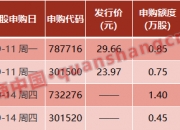自2009年由神秘人物中本聪提出以来,比特币已成为全球金融和技术讨论的核心话题。作为一种去中心化的数字货币,比特币不依赖任何中央权威机构,如政府或银行,而是通过分布式账本技术(区块链)来确保交易的安全和透明度。
Bitcoin has been at the heart of global financial and technological discourse since 2009, when it was introduced by mystics. As a decentralised digital currency, Bitcoin does not rely on any central authority, such as government or banks, but rather ensures the security and transparency of transactions through distributed account book technology (block chains).
比特币的主要特点之一是它的有限性。根据设计,比特币的总量被限制在2100万个。这种稀缺性是其价值主张的关键部分,也吸引了众多投资者将其视为避险资产。然而,这种稀缺性也引发了对比特币环境影响的担忧,因为挖矿过程需要大量电力,对环境造成了影响。
One of the main features of Bitcoin is its limited nature. By design, the amount of bitcoin is limited to 21 million. This scarcity is a key part of its value proposition and attracts many investors to view it as a risk-free asset.
尽管存在争议,比特币在金融领域的影响力持续增长。它为那些没有银行账户的人们提供了一种存储价值和进行交易的途径,这在传统金融体系中是无法实现的。此外,比特币交易的全球性和即时性,也使得跨境支付变得更加容易和成本更低。
Despite the controversy, Bitcoin’s influence in the financial sphere continues to grow. It provides those who do not have bank accounts with a way of storing value and trading, which cannot be achieved in the traditional financial system.
不过,比特币价格的剧烈波动使得它作为货币的功能受到质疑。它的价格可以一夜之间大幅上涨或下跌,这使得它在日常交易中的使用变得不稳定。此外,由于监管环境各国不同,比特币的法律地位和使用情况也存在很大差异。
However, the sharp fluctuations in bitcoin prices have called into question its functioning as a currency. Its prices can rise or fall significantly overnight, making its use of day-to-day transactions unstable.
总而言之,比特币是一种创新和颠覆性的金融工具,它挑战了传统的货币概念,并在金融科技领域开辟了新的可能性。随着时间的发展,我们可以预见比特币将继续影响全球金融体系,尽管它的未来路径仍充满不确定性。
In short, Bitcoin is an innovative and subversive financial instrument that challenges traditional monetary concepts and opens up new possibilities in the area of financial science and technology. As time goes on, we can predict that bitcoin will continue to affect the global financial system, although its future path remains uncertain.

随着时间的推移,比特币不断在全球金融市场中占据更重要的位置。尽管争议和挑战不断,但它已经成功地从一种边缘化的数字实验,成长为投资者、企业家乃至国家央行所关注的热点议题。
With the passage of time, Bitcoin continues to occupy a more important place in global financial markets. Despite its continuing controversy and challenges, it has succeeded in developing from a marginal digital experiment into a hot topic of interest for investors, entrepreneurs, and even national central banks.
投资者之所以对比特币趋之若鹜,很大程度上是因为其提供的分散化投资机会。在传统市场中,投资者往往需要通过购买不同类别的资产来实现投资组合的多样化,以降低风险。而比特币的出现,则为投资者提供了一种与传统市场相关性较低的全新资产类别。尤其在经济动荡时期,比特币时常表现出与传统资产不同的动向,这对于寻求对冲风险的投资者来说具有相当的吸引力。
In traditional markets, investors often need to diversify their portfolios by purchasing different types of assets in order to reduce risk. The emergence of Bitcoins provides investors with a completely new asset class that is less relevant to traditional markets.
除了投资之外,比特币在日常消费中的应用也在逐渐增多。越来越多的商家开始接受比特币支付,从小型零售商到大型企业,如微软、星巴克等,都曾表示将支持比特币结算。这种趋势表明,比特币正在逐渐融入人们的日常生活,成为一种更为普及的支付手段。
In addition to investment, Bitcoin’s use in everyday consumption is increasing. More and more businesses are beginning to accept bitcoin payments, ranging from small retailers to large businesses, such as Microsoft, Starbuck, etc., have indicated that they will support bitcoin settlements.
然而,比特币面临的监管挑战也不容忽视。由于其匿名性和跨国界的特性,比特币常被用于非法交易,这引起了各国政府的警觉。为了应对这一问题,全球各地的监管机构开始对比特币实施更严格的监管措施,包括要求交易平台实行用户身份验证,以及强化交易活动的监控。
By virtue of their anonymity and cross-border characteristics, Bitcoin is often used for illicit transactions, and this has raised the alarm of governments. To address this problem, regulators around the world have begun to impose stricter regulatory measures on bitcoin, including requiring a trade platform to apply user identification, as well as enhanced controls over transactions.
此外,比特币的技术发展亦在持续推进之中。尽管比特币的核心技术——区块链——已经相当成熟,但围绕比特币的交易速度、手续费等问题仍需解决。为此,开发者社区正在致力于比特币协议的升级,比如引入闪电网络(Lightning Network)等技术,旨在提高比特币交易的效率和扩展性。
In addition, Bitcoin’s technological development is continuing. Although Bitcoin’s core technology – the block chain – is quite mature, the issues surrounding Bitcoin’s speed of transactions, fees, etc., still need to be addressed. To that end, the developers’ community is working to upgrade the Bitcoin protocol, such as the introduction of technologies such as Lighting Network, to improve the efficiency and expansion of Bitcoin transactions.
比特币的去中心化特性还催生了其他加密货币和区块链项目的发展。以太坊、莱特币、瑞波币等新兴加密货币借鉴了比特币的基本原理,同时引入各自独特的功能和优化。这些加密货币和区块链项目共同构成了一个庞大的去中心化生态系统,不断推动着整个行业的创新和进步。
The decentralized properties of Bitcoin have also led to the development of other crypto-currency and block-chain projects. The new crypto-currency systems, such as Taiwan, Leiteco, and Ripoco, draw on the basic principles of Bitcoins, while introducing their own unique functions and optimization.

尽管前景广阔,比特币的未来仍充满不确定性。它可能继续成为金融技术革新的先锋,也可能面临来自监管、技术乃至市场情绪变化所带来的挑战。无论如何,比特币无疑已经在全球金融舞台上留下了深刻的烙印,其未来的演变值得我们持续观察和深思。随着社会对比特币认识的深化和技术的不断进步,我们有理由相信,比特币将在金融科技领域扮演更加重要的角色,继续引领数字货币的创新发展。
In any case, Bitcoin has undoubtedly left a deep mark on the global financial scene, and its future evolution deserves our constant attention and reflection. As society’s understanding of Bitcoin deepens and advances technology, we have reason to believe that Bitcoin will continue to play a more important role in financial science and technology and to lead innovation in digital money.
比特币作为一种数字资产,其成长之路并非一帆风顺。在其短暂但波折的历史中,曾多次经历剧烈的价格波动和市场信心危机。从早期的“丝绸之路”丑闻,到后来的分叉争议,每一次事件都对比特币的声誉和价值提出了严峻的考验。
In its short but volatile history, Bitcoin has experienced severe price fluctuations and market confidence crises on many occasions. From the early “silk route” scandals, to subsequent splits, each event posed a serious test of the reputation and value of the T.
尽管如此,比特币的支持者坚信,随着时间的推移,这些问题都会被克服,而比特币的去中心化、透明和不可篡改的特性将最终赢得公众的信任。事实上,比特币确实已经在某些国家获得了法定货币的地位,显示出其作为一种可靠的价值存储手段的潜力。
Nevertheless, Bitcoin’s supporters are convinced that these problems will be overcome over time, and that its decentralised, transparent, and non-alterable character will eventually gain public confidence. Indeed, Bitcoin has acquired the status of a legal currency in some countries, demonstrating its potential as a reliable repository of values.
比特币的底层技术—区块链,更是被视为改变游戏规则的关键因素。区块链技术提供了一种安全、高效且透明的数据交换方式,其应用范围远不止于数字货币。供应链管理、智能合约、身份认证、投票系统等领域都开始探索区块链技术的应用,预示着比特币背后的技术正在为各行各业的创新注入新动力。
Block chain technology provides a secure, efficient, and transparent way of data exchange that goes far beyond digital money. Supply chain management, smart contracts, identity certification, and voting systems all begin to explore the application of block chain technology, signalling that the technology behind Bitcoin is giving new impetus to innovation in various industries.

然而,比特币要想在全球范围内获得更广泛的接受,还需要克服诸多挑战。例如,如何在不牺牲去中心化核心优势的情况下提高交易速度和降低手续费;如何在保障隐私的同时,有效地防止非法活动;以及如何在全球不同的法律和监管环境下求得平衡。
However, there are many challenges that need to be overcome if Bitcoin is to gain wider global acceptance. For example, how to speed up transactions and reduce transaction fees without sacrificing decentralizing core advantages; how to effectively prevent illegal activities while safeguarding privacy; and how to strike a balance in different legal and regulatory environments around the globe.
对于比特币未来的展望,专家们持有不同的观点。有人认为比特币将逐渐成为主流的全球货币,与现有的法定货币并存甚至取代部分传统货币。也有人认为比特币的价值缺乏足够的经济基础支撑,最终可能会归零。无论哪种预测成真,比特币已经在全球范围内激发了对货币、经济乃至社会结构深层讨论的热潮。
Some argue that bitcoin will gradually become the mainstream global currency, coexisting with existing legal currencies and even replacing some of the traditional ones. Others believe that bitcoin’s value lacks sufficient economic underpinnings and may eventually be zero.
比特币的故事还远未结束,它正处在一个充满变革的时代。在技术进步、政策制定和社会认知的共同作用下,比特币将如何塑造未来的金融世界,是值得我们持续关注和深思的重要课题。可以预见的是,比特币将继续在技术创新、监管适应和社会接受度方面面临挑战,同时也会带来新的机遇和可能性。随着更多企业和国家加入这场数字货币的探索之旅,比特币在全球经济中的作用和影响力有望进一步扩大。
The story of Bitcoin is far from over, and it is in an era of change. With the combined effects of technological progress, policy development, and social awareness, how Bitcoin will shape the future financial world is an important topic that deserves our sustained attention and reflection.
注册有任何问题请添加 微信:MVIP619 拉你进入群

打开微信扫一扫
添加客服
进入交流群





















发表评论